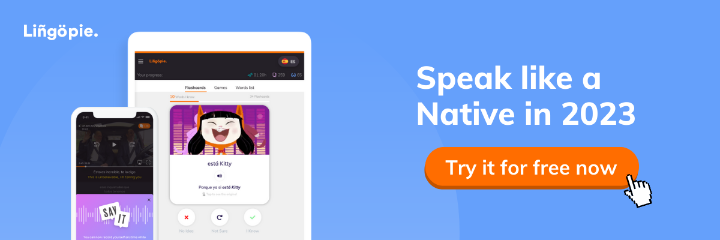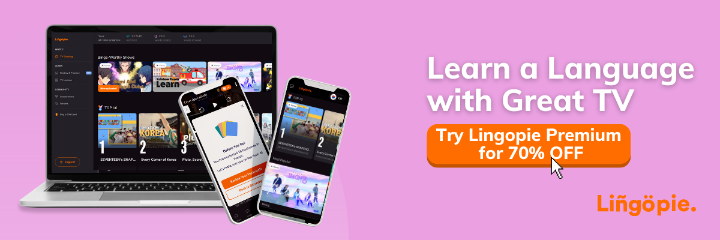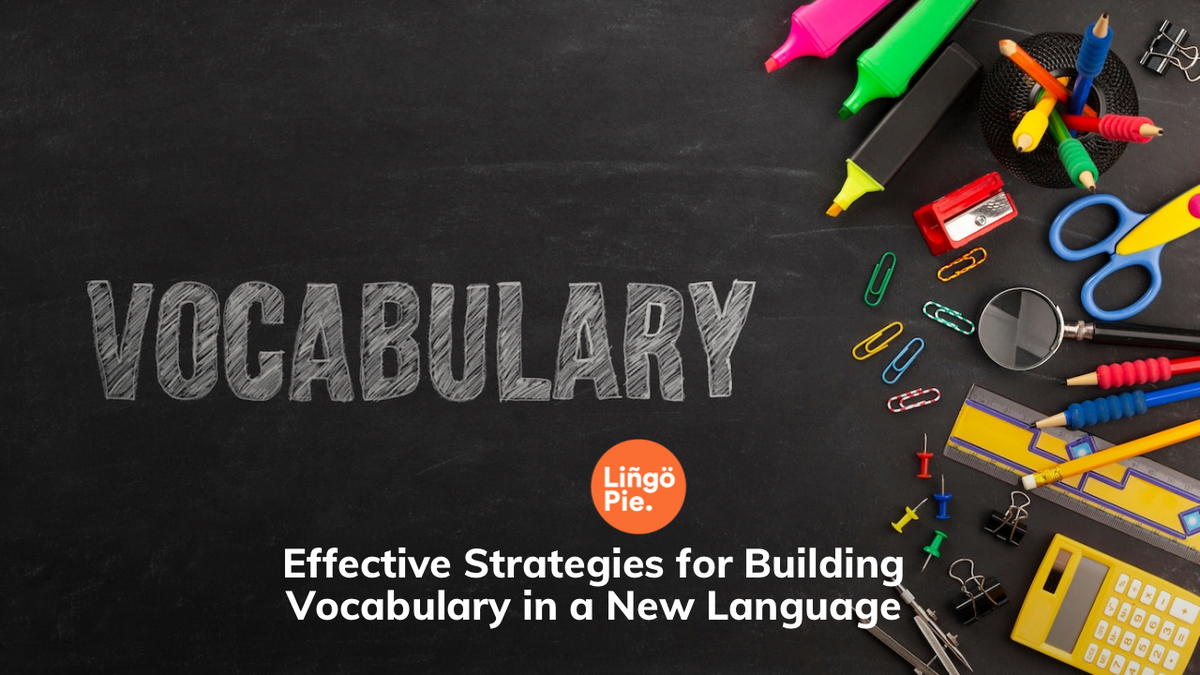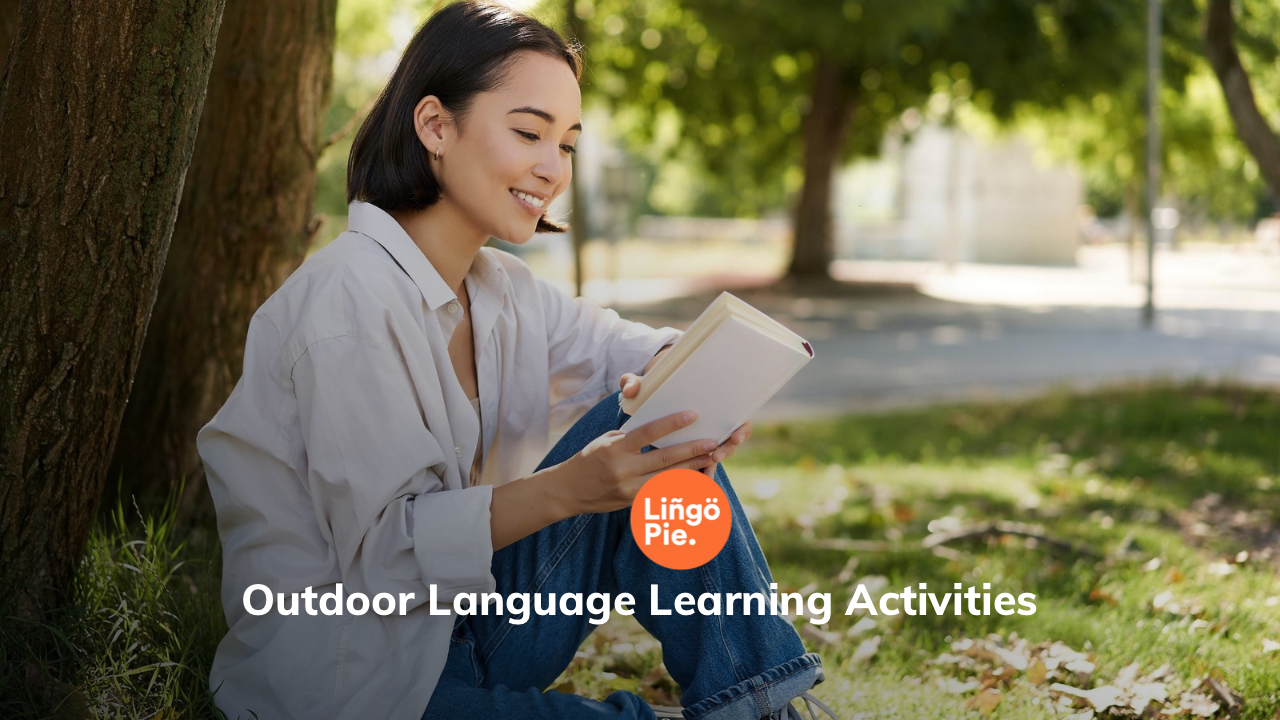Building a strong vocabulary is a fundamental aspect of language learning. It enables us to express ourselves fluently, comprehend texts, and communicate effectively with native speakers. Expanding your vocabulary in a new language requires dedication and effective strategies.
So, we will explore a range of proven techniques to enhance vocabulary acquisition and retention in a new language. From high-quality exposure to new vocabulary words (via TV, movies, literature, and music) to engaging in interactive language learning methods, we will uncover practical approaches to make vocabulary building an engaging and successful endeavor.
Whether you're a beginner or an intermediate language learner, these strategies will empower you to unlock a world of words and achieve language proficiency in an efficient and enjoyable manner.

Table of Contents
- Exposure to New Vocabulary Words
- Interactive Language Learning Methods
- Vocabulary Revision and Retention
- FAQs About Vocabulary Skills in a Foreign Language
- Summing Up: Effective Strategies for Building Vocabulary in a New Language
Exposure to New Vocabulary Words

One of the most effective strategies for building vocabulary is exposing yourself to a wide range of contexts and new words via high-quality content. Watch movies and TV shows in your target language, read books, and listen to music for vocabulary acquisition.
This exposure helps you encounter unfamiliar words in different contexts, allowing you to grasp their meanings and usage more effectively. Additionally, using context clues can aid in understanding new words within sentences or paragraphs.
Watch Foreign-Language TV and Movies
Watching TV shows and movies in your target language can be a highly effective method for vocabulary acquisition. By immersing yourself in authentic spoken language, you expose yourself to a wide range of vocabulary words and expressions.
Pay attention to the context and use of words in different situations. Lingopie, a popular language learning platform, offers a vast library of TV series and movies with subtitles in both the target language and your native language. This allows you to follow along, understand the dialogue, and expand your vocabulary effortlessly.
Lingopie's methodology is that you can binge-watch your way to fluency through high-quality and authentic exposure to the vernacular. Through regular viewing, you'll develop a deeper understanding of the language, its accents, and idiomatic expressions.
Read for Vocabulary Acquisition
Reading extensively in your target language exposes you to a wide range of vocabulary. Whether it's books, news articles, or online content, reading helps you encounter new words in different contexts.
Additionally, writing actively engages your brain in processing and internalizing vocabulary. Practice writing sentences or short paragraphs using new words, ensuring that you understand their meanings and can use them accurately.
By reading even for ten minutes a day, you can enhance your vocabulary skills and accelerate your language learning journey. And on top of that, you can learn more about the cultures, societies, history, cuisine, people, and politics associated with the language you are learning.
Remember to be consistent and persistent with reading foreign-language content to expand your linguistic repertoire and cultural awareness.
Listen to Music in Your Target Language
A captivating and engaging medium is using music for vocabulary acquisition. When you listen to songs in your target language, you expose yourself to a rich variety of vocabulary words, expressions, and phrases.
Pay close attention to the lyrics and try to decipher the meaning of unfamiliar words based on the context. Listening to the oral language in this way is particularly engaging as you can choose whatever music genre you like best and the rhythm and rhyme of the music can help you to retain new words better.
By actively engaging with the songs and their lyrics, you can expand your vocabulary while enjoying the melodies and messages in the songs.

Determine Meaning from Prior Knowledge
Building vocabulary is often easier when you can relate new words to your existing knowledge and familiar language elements. Take advantage of your native language and any other languages you may know.
Identify similarities, such as shared Latin roots, between words in your target language and words you already know. This connection can help you remember and understand new vocabulary more efficiently.
Interactive Language Learning Methods

By actively engaging in conversational practice with native speakers, participating in language exchange programs, and utilizing language learning apps and online resources, you can enhance your language skills in a dynamic and interactive way.
Conversations with Native Speakers
One of the most effective ways to improve your language skills is through conversational practice with native speakers. Seek opportunities to engage in conversational language either in person or through online platforms.
Language exchange programs provide a fantastic opportunity to connect with language learners who are native speakers of your target language. These programs facilitate language exchange partnerships where you can practice speaking with a native speaker while helping them learn your native language.
This immersive experience allows you to practice speaking, listening, and understanding the language in real-life contexts. Native speakers can provide valuable feedback, correct any mistakes, and expose you to authentic pronunciation and colloquial expressions.
By engaging in meaningful conversations and cultural exchanges, you not only improve your language skills but also make new friends who share your passion for language learning.
Language-Learning Apps
In the digital age, language learning apps have become invaluable tools for language learners. These platforms offer a wide range of interactive exercises, vocabulary drills, pronunciation guides, and language lessons.
Online resources such as language forums, podcasts, streaming sites, and YouTube channels offer additional opportunities to practice listening, speaking, and expanding your vocabulary.
There are also excellent language-learning programs online that are accessible, affordable, and appropriate for all language levels.
These methods provide practical exposure to real-life language use, cultural insights, and opportunities for meaningful connections with speakers of your target language.
Vocabulary Revision and Retention

In language learning, revising and retaining vocabulary is crucial for long-term language proficiency. Fortunately, several effective techniques can aid in this process.
Mnemonic Devices
One strategy for remembering all of your new vocabulary, from commonly used words to complex words and phrases, is using mnemonic devices.
This memory technique involves creating memorable associations or mental images to link new words with familiar concepts. Mnemonic devices can enhance recall, leading to a larger vocabulary, and make vocabulary retention more enjoyable.
Flashcards
Flashcards are another valuable tool for vocabulary revision. Writing new words on flashcards, with the translation or definition on the reverse side, allows for quick and regular practice.
You can enjoy independent study with flashcards, or make fun activities with them to quiz your friends. By reviewing flashcards regularly and testing yourself on the meanings, you reinforce the connections between words and their meanings.
Regular Revision
Regular revision is essential for vocabulary retention when you are learning a new language. Incorporate daily or weekly vocabulary review sessions into your language learning routine to reinforce your knowledge.
By combining mnemonic devices and flashcards, you can improve vocabulary revision and enhance your ability to recall and retain the words you learn.
FAQs About Vocabulary Skills in a Foreign Language
Let's look at some frequently asked questions about building vocabulary in a foreign language.
What is building vocabulary?
Building vocabulary refers to the process of expanding your repertoire of words and expressions in a particular language. It involves actively learning and acquiring new words, understanding their meanings, and using them effectively in various contexts.
You can do this by engaging with high-quality foreign language content and communicating with native speakers of your target language.
How can students improve their vocabulary?
Students can improve their vocabulary by engaging in activities such as reading books, articles, and online content, actively using flashcards or vocabulary apps, practicing word association and mnemonic techniques, and engaging in regular conversations with native speakers to reinforce word usage and comprehension.
How long does it take to learn a new language?
The time it takes to learn a new language varies widely depending on factors such as the language's complexity, your prior language learning experience, time commitment, and learning style. You can learn a new language at an intermediate level in just a few months if you prioritize language immersion and daily revision.
How do I teach myself a new language?
To teach yourself a new language, start by setting clear learning goals, and selecting suitable language-learning resources such as textbooks, online courses, or language-learning sites. Practice regularly through listening, speaking, reading, and writing activities.
Engage with native speakers, use language exchange platforms, and immerse yourself in the language as much as possible. Consistency and persistence are key to successful self-guided language learning.

Summing Up: Effective Strategies for Building Vocabulary in a New Language
Building vocabulary is a vital component of successful language learning. By implementing the effective strategies discussed in this article, such as exposure to context, leveraging prior knowledge, and engaging in interactive methods, language learners can accelerate their vocabulary acquisition and retention.
Whether it's through watching TV and movies on Lingopie, reading, listening to music, having conversations with native speakers, or utilizing language learning apps, the key is to consistently engage with the target language in various contexts.
Remember, vocabulary acquisition is an ongoing process, and regular revision and practice are crucial for long-term retention. By embracing these strategies, language learners can expand their linguistic repertoire, communicate confidently, and embark on a fulfilling language-learning journey.






![4 Hacks to Learn English With Movies [2025 Guide]](/blog/content/images/size/w300/2023/10/88AAD01A-8BF3-4648-82CC-639C1B240C28.png)
![Language Difficulty Ranking For English Speakers [2025]](/blog/content/images/size/w300/2025/05/Language-Difficulty-Ranking----For-English-Speakers.png)
![Language Learning with Netflix [2025 Guide]](/blog/content/images/size/w300/2023/05/Netflix-AD.jpg)
